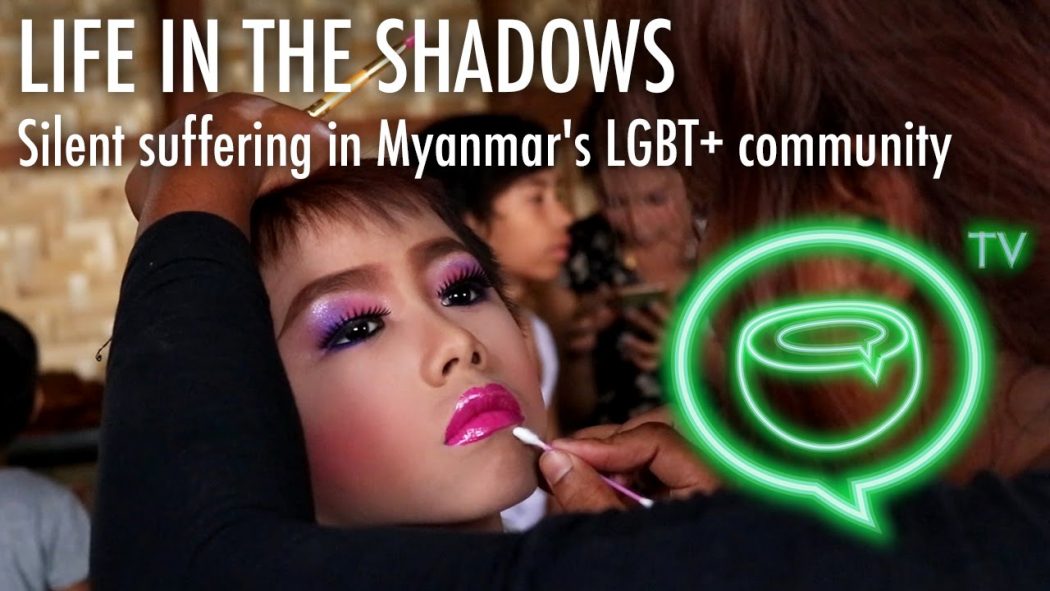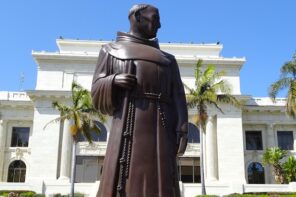Wikileaks came under fire for releasing documents that included personally sensitive information, including the name of a man arrested for homosexuality in Saudi Arabia, where homosexuality is still a capital offense.
In the International Journal of Human Rights, Po-Han Lee examines LGBT rights and Asian values. From the abstract:
Drawing upon LGBT rights in Taiwan, as well as Hong Kong and Singapore, this article – through an application of K.H. Chen’s (2010) Asia as Method – critically reviews how global LGBT politics interact with local societies influenced by Confucianism. Along a perpetual competition between the universalism and cultural relativism of human rights, this article not only identifies the pitfalls of ‘Asian values’ from a cosmopolitan perspective but also contributes to a queered approach to human rights-holders against homonationalism.
Indonesia: Court hears Islamist arguments for criminalizing homosexuality, fornication
On Tuesday, anti-gay academics and activists urged the Constitutional Court to criminalize fornication and homosexuality, reports BuzzFeed’s Lester Feder. It was the latest hearing in a lawsuit brought after a months-long campaign of homophobic rhetoric by government and religious officials.
Representatives from an Islamic women’s group “argued that not only was the country on the verge of a crisis of sexual morality, but it was at risk of having its core Muslim values overridden by international human rights claims that embrace LGBT rights.” One of the judges said, “Must all laws that are not in according with the morals and religious have to be synchronized with the local values so this court…[can be] an institution illuminated by the light of God.” The government is opposing the lawsuit, warning that criminalizing sex before marriage would turn criminalize many people and make the government authoritarian.
Women’s rights activist Tunggal Pawestri wrote about the case for the Jakarta Post:
During the court’s last two hearings, six experts from the petitioners’ side spoke in support of the proposed changes. No less than three experts, sworn under the Holy Quran, claimed that the LGBT movement was a proxy war. Another so-called expert claimed that the LGBT movement was historically initiated by Jewish people in the US, and furthermore that the National Commission on Human Rights (Komnas HAM) and the National Commission on Violence Against Women (Komnas Perempuan) were both promoting same-sex marriage.
The first claim is not worth responding to, but on the issue of same-sex marriage I would like to quote academic and LGBT activist Hendri Yulius: “Since the [early days] of the gay movement, marriage equality has never been the goal […] How [can] Indonesian LGBT persons strive for marriage equality, while many [are] still beaten up, harassed and fired from their jobs, just because of their sexual orientation and gender identity?”
Pawestri’s column also points out flaws in arguments raised by other petitions, including one psychiatrist who argued that LGBT people “suffer from a contagious mental illness.”
Human Rights Watch LGBT Rights Director Graeme Reid called the proposed criminal sanctions a threat to all Indonesians, saying the court “has an important opportunity to strengthen the right to privacy and nondiscrimination in Indonesia.”
The Washington Blade reported this week that the US Agency for International Development has given a multi-million-dollar grant to fight tuberculosis to Nahdlatul Ulama, a Muslim organization that, while it campaigns against Muslim extremism, has also supported the recent anti-LGBT backlash in the country and called for legislation providing “rehabilitation for every person with LGBT tendencies to return to normal.”
Zambia: Churches oppose condom distribution in prisons
At AllAfrica.com, Patrick Maboshe writes about efforts to reduce HIV prevalence among prisoners.
“The challenge we are faced with as prisons administrators is that we do not know to what extent it [homosexuality] exists or whether it is a forced sexual practice or consensual sexual practice,” said Prison Commissioner Percy Chato. “Therefore, the issue of men having sex with men in prisons requires further investigations.”
As well barriers within the legal system, Zambia’s LGBT community face opposition from the country’s churches, which are against promoting gay rights. They oppose the distribution of condoms in prisons on the grounds that this promotes homosexuality. Supported by the churches, the prison service promotes abstinence as its main prevention approach.
Lithuania: Conservative manifesto calls LGBT movement tyrannical
A coalition of religious and intellectual leaders released a manifesto that condemned the 2016 Baltic Pride celebration “as an attack on human nature and the public good that follows in the path of the Soviet Union’s assault on the traditional family,” according to LifeSiteNews, which says:
…the LGBT movement is opposed by many of the nation’s scholars in the Vilnius Forum, who perhaps value the Christian and Western intellectual tradition more than their Western counterparts because they had to defend it against brutal National Socialist or Communist suppression for decades in the 20th century. Two Christian leaders who led the resistance and signed the anti-Pride statement, Makauskas said, were Archbishop Sigitas Tamkevičius and Bishop Jonas Kauneckas. (The archbishop published an underground journal about Soviet suppression until caught and sent to the Gulag.)
The manifesto declares that “the ideology of genderism arose directly from 19th century Marxist communism, which had set iself the goal of destroying both the foundations of the old society and the concept of family.” The manifesto urged the government to cancel pride celebrations, concluding, “It isn’t too late for the government to decide who it stands with – the new enslavers of Lithuania, those who will destroy our freedom, or with its own Nation, aiming to remain free.”
Church of England: Gay clergy plan coming out about their marriages
The Times reports that a dozen Church of England clergy are preparing to go public with the fact that they have married their same-sex partners in defiance of church rules. “Half of the signatories had already declared themselves to be in a same-sex marriage,” reports Nicholas Hellen, “Doubling the number threatens the fragile truce on an issue that has divided the church since same-sex marriages were allowed in England and Wales in March 2014.”
Iraq: Interview with Kurdish human rights activist
Ayaz Shalal, a human rights activist from the Kurdish region of northern Iraq, was interviewed by the Washington Blade during a visit to the U.S. this month. Shalal said he expects professors, police officers and government officials “from a variety of religious, social and cultural backgrounds” are expected to participate in a series of community forums the group will be holding to document attitudes toward LGBT Iraqis. He said that he and people who visit his organization’s office are “terrified” by executions of gay men by ISIS in areas controlled by the militant group.
“LGBT Iraqis look at themselves as less than others,” said Shalal. “They always feel if they appear to everyone as gays or as lesbians people will judge them.”
Shalal told the Blade that LGBT Iraqis don’t trust anyone because the way they are treated in the country. Religious attitudes also have an adverse impact on the way people view homosexuality, even though Shalal said the Quran does not specifically speak against the issue.
“An imam would say it’s haram, they should be killed, they should be stoned, their heads should be cut off, but that’s not the truth,” said Shalal. “The same goes for Christians in my country.”
Burma: LGBT people ‘missed the revolution’
At the Daily Beast, Joshua Carroll writes that “LGBT Burmese Missed the Revolution.” Carroll reports that trans women view police as among the biggest threats to their safety, and that the perpetrators of violence, extortion, and sexual assault “enjoy complete legal impunity.”
Many activists and their allies are hopeful that the first democratic government in decades, led by Nobel Peace laureate Aung San Suu Kyi, will help them to tackle these abuses and begin writing LGBT rights into law. But the signs so far are anything but promising.
“I’m not interested,” said Win Htein, one of Suu Kyi’s closest aides, when asked if the government planned to do anything about LGBT rights abuses. He was answering amid bursts of seemingly uncontrolled laughter. “Burma is not like the West. Gender issues are not important,” he said. (The recording of the phone call can be heard at the end of the documentary Life in the Shadows: Silent Suffering in Myanmar’s LGBT+ Community.)
Win Htein has become well known among foreign journalists in Burma for his cantankerous dismissal of questions about the country’s persecuted Muslims, but at least he has enough respect for the gravity of that issue not to find it hilarious.
Mexico: Anti-marriage-equality protests planned in 60 cities
We reported last week that Catholic bishops had called for September protests against the president’s proposal to make constitutional changes recognizing marriage equality, which is currently spreading across Mexico through a series of court rulings. Proceso reports this week that the National Front for the Family has announced anti-marriage-equality marches in 60 cities. A spokesman for the group said Mexico needs to protect the “natural family” from the government’s efforts to impose “gender ideology.”
Serbia: Activists plan protest at Turkey’s embassy
Activists in Serbia are planning a protest in front of the Belgrade embassy of Turkey on Monday in response to the recent murder of trans activist Hande Kader in Istanbul. Organizers also said the gathering would focus on frequently unpunished attacks on LGBT people in Serbia. Demonstrators also protested Kader’s death in Istanbul last Sunday.
Pakistan: Human rights activists urge protection of trans women
Human Rights Watch urged Pakistani authorities to “urgently investigate the surge in violent attacks on transgender women in Khyber Pakhtunkhwa province.”
“The surge in brutal attacks on transgender women in Pakistan will only end when authorities signal that they will hold the attackers to account,” said Brad Adams, Asia director at Human Rights Watch. “Hospital staff and police need to stop their humiliating treatment of transgender people and start protecting their rights.”
India: Government plans ban on surrogacy by gay couples, foreigners
Associated Press reports that Foreign Minister Sushma Swaraj said this week that the government will soon be introducing legislation “to ban foreigners, single parents and gay couples from using India’s surrogacy services in order to protect poor women from exploitation.” Only married Indian couples who have failed to have a child for five years would be eligible for surrogacy.
Vietnam: Hanoi hosts fifth Viet Pride
Last Sunday, hundreds of people joined a bicycle parade through the streets of Hanoi as part of the fifth annual Viet Pride celebration. According to an IANS story, “LGBT rights are improving in Vietnam, with gay marriage tolerated by the state and a law passed last year allowing people who have undergone gender reassignment to register under their new gender. However, discrimination against LGBT people remains an issue, with conservative views on sexuality still held in much of the country.”
Australia: Political jockeying over marriage equality plebiscite
In response to signals that Labor party MPs may block a parliamentary vote to put a marriage equality plebiscite before the voters, ruling Liberal party leaders warned that without a plebiscite they may prevent a vote on marriage equality for three years. Labor wants Parliament to vote directly on marriage equality, a vote they would win if parliamentarians were freed by party leaders to vote their conscience.
Olympics Postscript: Team LGBT beats every country that criminalizes gays
Outsports reports, “The publicly out gay, lesbian and bisexual Olympic athletes in Rio outperformed expectations, with 25 of the 53 publicly out athletes winning medals.” Together they accounted for 14 medals (accounting for team sports such as the four out women played on the US basketball team). Notes Outsports, “Those 14 medals beat every single country that criminalizes sex between people of the same gender.” The lesson, according to Outsports, “If you want your population to thrive, including in the world of athletics, let them be free.”





